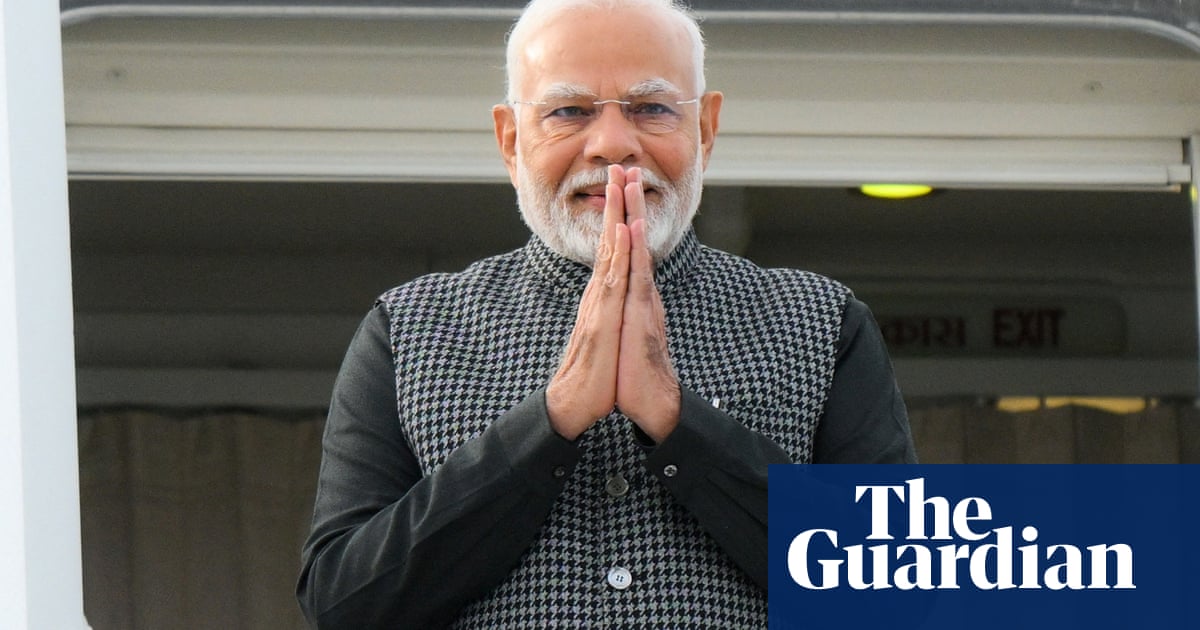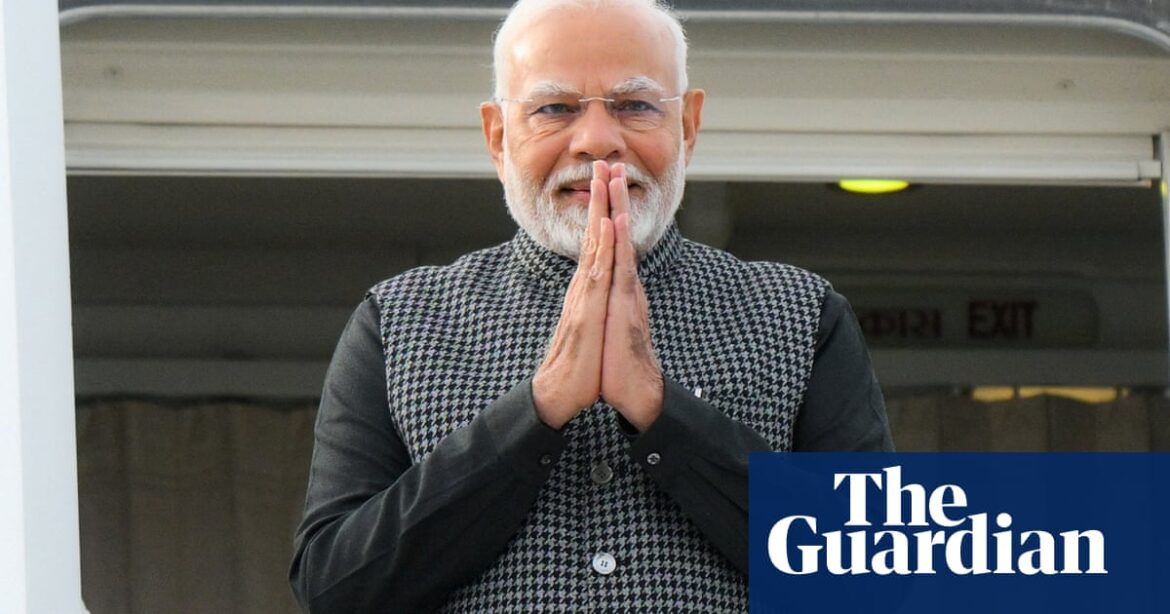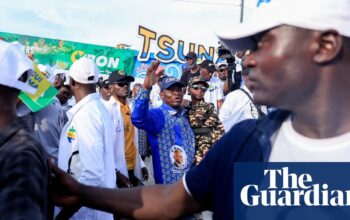
India’s prime minister, Narendra Modi, will make a “historic” state visit to the oil-rich Caribbean nation of Guyana this week when the two countries are expected to sign energy and defence agreements.
Modi’s visit to the country, from Tuesday to Thursday, will be the first from an Indian prime minister since Indira Gandhi’s in 1968, two years after Guyana gained independence from Britain.
He is expected to have bilateral discussions with Guyana’s president, Mohamed Irfaan Ali, and address a special sitting of the country’s 65-seat parliament.
Guyana’s foreign secretary, Robert Persaud, has described next week’s visit as a significant milestone in the relations between two of the globe’s fastest-growing economies.
According to the World Bank, Guyana has been experiencing “extraordinary economic growth” of more than 40% in the last three years owing to its oil boom. The country has become a magnet for global trade and investment interests, recently attracting a visit from Canada’s top commercial and development entities to explore investment opportunities. Thanks to their strong historical and cultural ties, India and Guyana say they are looking forward to mutually beneficial agreements.
“Both countries can, through their cooperation, develop greater synergies in a variety of areas, including energy, agriculture, technology and security. Already, we have strong bilateral ties, but with PM Modi’s visit, it is expected that the relations between Guyana and India will be taken to a level that will see enhanced benefits for both countries,” Persaud said.
Modi will also meet other leaders from the Caribbean Community (Caricom), an intergovernmental organisation of 15 Caribbean nations, including Guyana, at a Caricom-India Summit on Thursday, which he will co-chair with Grenada’s prime minister Dickon Mitchell.
According to Caricom, the meeting is expected to “further solidify bilateral cooperation between Caricom and India in energy and infrastructure, agriculture and food security, health and pharmaceuticals, and technology and innovation”.
India’s aims for the summit probably include improving its global foreign policy profile and tapping into the region’s burgeoning energy complex, Dr Scott MacDonald, an economist and Caribbean Policy Consortium fellow, told the Guardian.
“Guyana is climbing the ranks as an oil province. It will continue to grow for both oil and natural gas and, let’s face it, India faces a deficit in terms of its ability to generate power. It needs imported energy,” he said.
He added: “Suriname next door to Guyana is on the verge of having its own revolution in natural oil and gas … so, for India, looking at the southern energy complex which is Guyana, Suriname, Trinidad and Tobago and possibly Grenada, is geopolitically important.”
But the fact that Guyana was chosen as the landing point in the region is significant, a statement from the government of Guyana said, emphasising that, last year, President Ali was invited to India as the chief guest at the Pravasi Bharatiya Divas, which celebrates the contribution of the overseas Indian community. At the event, Ali was awarded the Pravasi Bharatiya Samman – the highest honour given to overseas Indians.
Nearly 40% of Guyana’s population are of east Indian origin. Many still follow the cultural and religious practices of their ancestors who were shipped to Guyana From 1838 to 1917 as indentured labourers to plug the labour gap on plantations after the abolition of slavery.
During his visit, Modi will address the Indian community and Indian diaspora and take part in a floral tribute at the Mahatma Gandhi statue in Guyana’s Georgetown, which was installed in 1969 during the Mahatma Gandhi centenary celebrations. He will also visit the Indian Arrival Monument, which commemorates the arrival of the first ship carrying Indian indentured labourers to the Caribbean.
Source: theguardian.com



